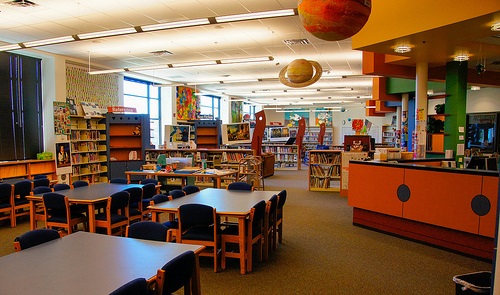
March 9, 2015; Washington Post
Don’t give up on the printed word for kids just yet. James Patterson, whom Vanity Fair called “the planet’s best-selling author since 2001,” intends for young people to read books—and has pledged his millions once again to make sure they can.
According to an article by Washington Post Book World Editor Ron Charles, it was yesterday that “Patterson announced his plan to give away $1.25 million to school libraries. In partnership with children’s publisher Scholastic, he will make individual donations of $1,000 to $10,000. The money can be used for books, reading programs or even technology and repairs.”
The program will be administered by Scholastic Reading Club, a division of Scholastic Inc., which “has pledged to match each grant with bonus points that can be used for books and classroom materials.”
This announcement marks the latest in a series of many philanthropic initiatives Patterson has spearheaded over more than a decade to champion literacy. His most recent was as co-sponsor of the 2015 World Book Day Award in which he donated “£50,000 prize money to be split among some of the 800 schools” competing in the United Kingdom and Ireland, according to Alice Vincent in this week’s Daily Telegraph. In January, Mike Scutari of Inside Philanthropy said of Patterson’s giving:
“He has also contributed more than $26 million to his and his wife’s alma maters, given another $5.8 million in scholarships at 22 colleges and universities, sent 650,000 of his books to U.S. troops at home and abroad, and provided a box of books to every public school in New York City, Los Angeles, Savannah, Georgia, and Palm Beach County, Florida.”
Sign up for our free newsletters
Subscribe to NPQ's newsletters to have our top stories delivered directly to your inbox.
By signing up, you agree to our privacy policy and terms of use, and to receive messages from NPQ and our partners.
Ron Charles, author of the Post article, also notes that back in December, “James Patterson finished giving away $1 million to more than 175 independent bookstores nationwide.”
With this new U.S. initiative for school libraries, Patterson and Scholastic have made the application process easy and accessible to invite maximum participation. So long as a school library is somewhere in the United States and serves students from pre-K through 12th grade, it’s eligible for nomination—by librarians, teachers, administrators, or anyone else. As for requirements, Patterson says, “Applicants just have to state what they would do with the money in 200-300 words. What could be easier?”
The program has been designed to “maximize the number of school libraries that will get a piece” of the grant. Scholastic, according to Hillel Italie reporting for the Associated Press, “will match each donation with ‘Bonus Points’ that can be used to purchase classroom materials…Requests can be for anything from fixing a computer system to paying for a school reading project.”
This gift to school libraries couldn’t come at a better time. The 2014 annual report of the American Library Association warned, “School libraries continue to feel the combined pressures of recession-driven financial tightening and federal neglect” and “in some districts and some states, still face elimination or de-professionalization of their programs.” Italie reinforced that, saying:
“In California, for instance there was just one certified school librarian for every 7,784 students in 2012-13. Chicago and Philadelphia are among the other cities that have sharply cut library staffing. More than 8,000 public schools nationwide did not have libraries in 2011-12, according to the National Center for Educational Statistics.”
Patterson, the son of a teacher who remembers being “dragged” to his local library every weekend, firmly believes it’s crucial to fund school libraries. He told Ron Charles, “Kids have not made the switch to reading books on phones, tablets, or even e-readers…It isn’t useful for anyone to go on the Internet and see 2 to 4 million titles. It is useful to have human beings to talk to and help guide you to exactly the kind of book you’re looking for or hope to find.”
With regard to his motivations, Patterson told Italie at the AP, “I’m the most emotional and passionate about getting kids reading in late elementary and early middle school reading because if they don’t how are they going to get through high school?”
“We just want to keep doing something useful, pushing the rock up the hill,” he said. “It’s a big rock, a big hill.”—Susan Raab










